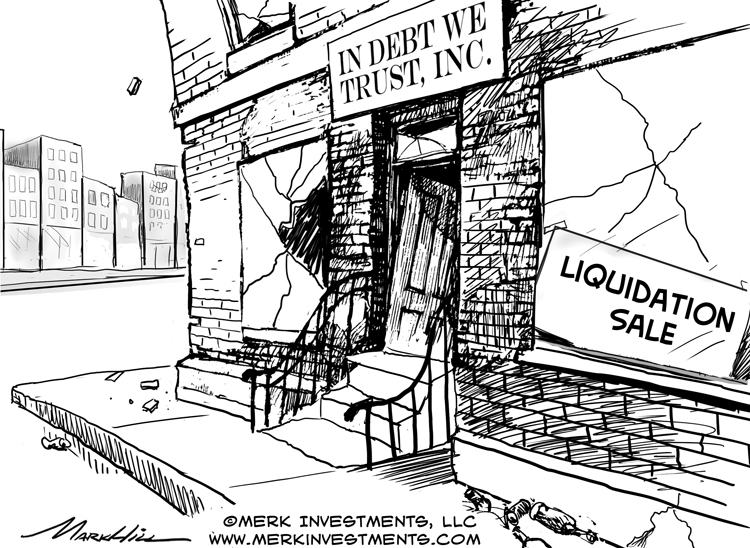If the road to hell is paved with good intentions, American’s exorbitant privilege might be at risk with broad implications for the U.S. dollar and investors’ portfolios. Let me explain.
The U.S. was the anchor of the Bretton Woods agreement that collapsed when former President Nixon ended the dollar’s convertibility into gold in 1971. Yet even when off the remnants of the gold standard, the U.S. has continued to be the currency in which many countries hold their foreign reserves. Why is that, what are the benefits and what are the implications if this were under threat?
Let me say at the outset that the explanation I most frequently hear as to why the U.S. dollar is the world’s reserve currency - “it is because of tradition” - which is in my opinion not a convincing argument. Tradition only gets you so far - it ought to be policies and their implementation that guide investors.

Wikipedia’s definition of exorbitant privilege includes:
“The term exorbitant privilege refers to the alleged benefit the United States has due to its own currency (i.e., the US dollar) being the international reserve currency.[..]
Academically, the exorbitant privilege literature analyzes [..] the income puzzle [which] consists of the fact that despite a deeply negative net international investment position [NIIP], the U.S. income balance is positive, i.e. despite having much more liabilities than assets, earned income is higher than interest expenses.”
In the context of today’s discussion, I would like to focus on what I believe may be the most under-appreciated yet possibly most important aspect of the so-called exorbitant privilege: what makes the U.S. so unique is that it is de facto acting as the world’s bank. A bank takes on (short-term) deposits and lends long-term, capturing the interest rate differential.
Applied to the U.S. as a country, investors borrow cheaply in the U.S., and seek higher returns by investing in the rest of the world. In the investment world, we also refer to this as carry, i.e. one might say the U.S. engages in an amazing carry trade. As long as this ‘carry trade’ works, it is quite a charm. That said, there are those who are concerned that the party cannot last forever. To quote from our own past writings, the former head of the European Central bank Wim Duisenberg said in 2003: ‘We hope and pray the global adjustment process will be slow and gradual." -- In fact, a reference to a "disorderly adjustment of global imbalances" was a risk cited by the ECB every month in its statement until about the time current head, Draghi, took over. This "adjustment process" is a thinly veiled reference to a potential dollar crash.’
So is there reason to believe the U.S. may no longer be serving as the world’s bank? At first blush, the answer would be no, as the U.S. has deep and mature financial markets. However, there are developments of concern:
- The first has already happened. Due to a regulatory change, our analysis suggests it is less attractive to issue debt in U.S. dollars for anyone other than the U.S. government. The regulatory change might look arcane at first, but in our Merk Insight “The End of Dollar Dominance?”, we argued that a quirk in money market fund rules that could be interpreted as an implicit subsidy for issuers of debt has gone away. It’s more than a quirk because funding cost for just about everyone other than the U.S. government has gone up, as evidenced by elevated intra-bank borrowing rates (LIBOR rates) independent of the rise in Federal Funds rate. If our analysis is correct, it means that the U.S. dollar is a less attractive currency to raise money in than it had been. These days, issuers might as well issue debt in euros, a trend exacerbated by the extraordinarily low interest rates in the Eurozone.








